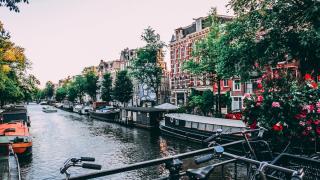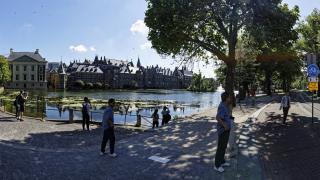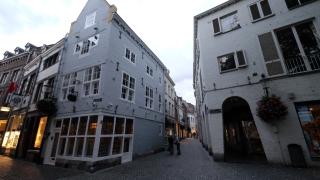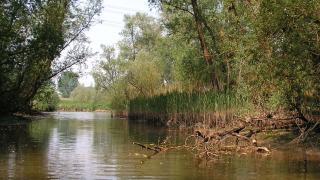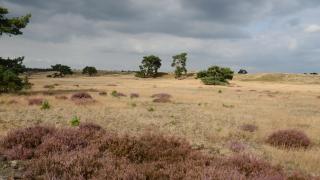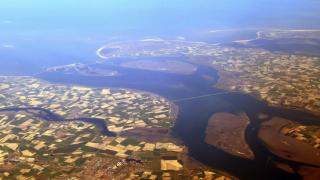Staying Well Abroad
Dutch healthcare ranks among the best in Europe. Hospitals in Amsterdam, Rotterdam, and Utrecht offer advanced care. Emergency number is 112. Ambulance response times average 8-15 minutes in cities. Most doctors speak English. Pharmacies (apotheek) are widely available, open 08:00-18:00. Some offer 24-hour service in major cities.
Travelers should carry a GHIC or EHIC for state healthcare access. Without it, expect to pay €100–€150 for a GP visit. Hospital stays can cost €200–€400 per day. Travel insurance is essential.
Vaccinations required are specific. Hepatitis A, tick-borne encephalitis, and influenza are recommended. Tick bites are a risk in Veluwe and Oostvaardersplassen nature areas from April to October.
Medication rules differ from the UK. Some prescription drugs are restricted. Always carry a doctor’s letter and check Dutch regulations.
Prepare before arrival:
- Confirm insurance covers Dutch healthcare costs
- Check vaccination needs 8 weeks ahead
- Know nearest hospital (ziekenhuis) location
- Save emergency contacts in your phone
Healthcare in the Netherlands is high quality and regulated by law. Visitors needing medical care should first contact a local general practitioner (huisarts). Most Dutch towns have a huisartsenpost (out-of-hours GP clinic) for urgent cases. GPs provide referrals to hospitals and specialists. Hospitals are located in all major cities, including Amsterdam, Rotterdam, and The Hague. Emergency care is available 24/7. Ambulance response in urban areas is usually under 15 minutes. English is widely spoken by medical staff in Dutch hospitals and clinics. EU and UK travelers should carry a valid EHIC or GHIC card. These cards cover necessary state healthcare at Dutch rates. Non-EU visitors must pay for treatment. A standard GP consultation costs €30-€50. Hospital treatment can exceed €200 per day. Travel insurance is essential for non-EU visitors to avoid high costs. Pharmacies (apotheek) are available in every city and most towns. Prescription medicines require a Dutch doctor’s prescription. In an emergency, dial 112 for ambulance services. Always inform your travel insurer if admitted to a Dutch hospital. Some medications legal at home may be restricted in the Netherlands. Check Dutch regulations before travel. Medical providers lists are available from embassies and consulates. Vaccinations are not mandatory but recommended for some travelers.
Emergency Know-How
Dial 112 for emergencies in the Netherlands. Operators speak Dutch and English. Use 112 for urgent medical help, fire, or police. Ambulance response in Dutch cities is usually 8-15 minutes. Paramedics provide advanced care on-site. Hospitals like Amsterdam UMC and Erasmus MC have 24/7 emergency departments (spoedeisende hulp).
- Ambulance rides are not free. In 2024, the standard fee is €431 per trip. Payment is usually billed to your insurer.
- Always contact your health insurance or medical assistance company if you are admitted to hospital. They help with payment and translation.
- If you do not speak Dutch, ask for an English-speaking staff member. Most hospitals in major cities have multilingual staff.
- Carry your European Health Insurance Card (EHIC) or Global Health Insurance Card (GHIC) for access to state healthcare.
- For minor emergencies, visit a huisartsenpost (out-of-hours GP clinic). These are open evenings, nights, and weekends.
- Pharmacies (apotheek) are open weekdays; some have 24-hour service in large cities.
- Always keep your passport and insurance details with you.
Medications and Local Rules
Bringing medicines into the Netherlands is regulated.
- Prescription and over-the-counter medicines are allowed for personal use. Carry only the amount needed for your stay.
- Some medicines legal in other countries are controlled in the Netherlands. Examples include strong painkillers, ADHD medication, and some sleeping pills.
- For controlled substances, you must carry a Schengen certificate or a doctor’s letter. The certificate must be approved by your home country’s health authority.
- Always keep medicines in original packaging with your name and prescription details.
- Dutch customs may check your medicines at the border. Fines apply for undeclared controlled drugs.
- Pharmacies (apotheek) are widely available in cities and towns. Most are open Monday to Friday, 08:00–18:00. Emergency pharmacies (dienstapotheek) operate outside these hours.
- Pharmacists in the Netherlands speak Dutch and usually English. They can advise on local regulations and alternatives if your medicine is unavailable.
- Over-the-counter medicines are sold only in pharmacies and some drugstores (drogist). Prices are regulated; for example, paracetamol 500mg (20 tablets) costs about €2–€3.
- For reliable health information, consult TravelHealthPro or the Dutch government’s website (rijksoverheid.nl).
Staying Safe: Everyday Tips
Ticks are common in Dutch forests and parks from March to November. Use insect repellent with DEET. Wear long sleeves and trousers in wooded areas, especially in Veluwe and Utrechtse Heuvelrug. Check skin for ticks after outdoor activities. Remove ticks with a tick remover (tekenpincet) from Dutch pharmacies (cost: €3-€6).
Cycling is the main mode of transport in Dutch cities. Use marked cycle lanes (fietspad). Always signal turns. Cyclists must use lights at night (fine: €60 if missing). Pedestrians should cross at zebra crossings (zebrapad). Watch for silent electric bikes (e-bikes), common in Amsterdam and Rotterdam.
Pickpocketing occurs in busy areas. Watch bags in Amsterdam Centraal, Schiphol Airport, and trams 2, 4, 14. Use zipped bags. Do not leave valuables in bike baskets. Theft from parked bikes is common; use two locks.
Weather can change quickly. Sudden rain is frequent, especially in autumn. Carry a compact umbrella or raincoat. During King’s Day (27 April), crowds are dense in city centres. Stay alert for lost property and personal space.
Dutch people value personal safety and directness. Locals report suspicious behaviour. Emergency help is accessible and prompt.
Quick Reference & Pro Tips
Essential contacts:
- Emergency: 112 (Dutch and English spoken)
- Non-urgent medical help: local huisarts (GP)
- Pharmacy: apotheek (open weekdays 08:00–18:00)
Useful phrases:
- "Ik heb medische hulp nodig" (I need medical help)
- "Waar is de dichtstbijzijnde apotheek?" (Where is the nearest pharmacy?)
Checklist before travel:
- Bring your GHIC/EHIC card for state healthcare
- Carry travel insurance covering treatment and evacuation
- Pack prescription medicines in original packaging with a doctor’s letter
- Check Dutch rules for controlled medicines at rijksoverheid.nl
- Confirm recommended vaccines 8 weeks before travel
Final reminders:
- Pharmacies may charge €10–€15 for basic over-the-counter items
- Tap water is safe to drink everywhere
- Tick season: March–November in parks and forests
- Keep a digital copy of your health documents
- Know your embassy’s contact details in the Netherlands
